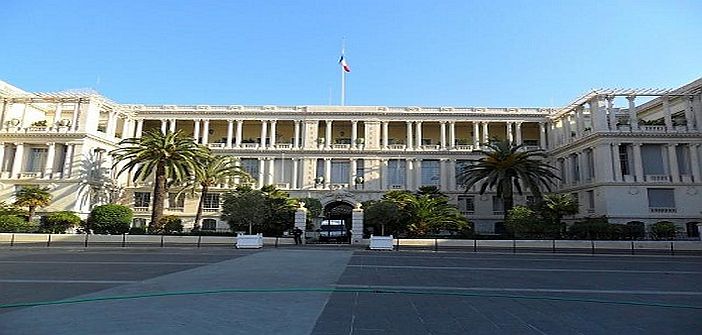It’s not easy being a prefect in the Alpes-Maritimes when dealing with a local leader who is rather resistant to external authority (and to the law, for that matter) when it doesn’t suit him.
In fact, it was thought that with the departure of prefect Adolphe Colrat (it must be recognized that Christian Estrosi never got over it!), everything would be back to normal.
Moreover, the new prefect has a background that aligns more with the right in terms of political sensitivity.
Given the political colors of Nice and its region (the Republican blue and the fascist brown), this should or could have enabled him to be in tune with the vision and values.
But, judging by what happened, he also is not in sync with the wishes of the one who left the position but not the baton of command of the municipal community.
Final result: even when adopting methods by confusing the Prefecture with Government art, he clearly makes it known that he’s not happy.
This Friday morning, the prefect of the Alpes-Maritimes rejected the declaration of public utility for the nursery project on Rue Pontremoli that the president of the Metropolis wanted to set up in place of the En-Nour prayer hall, which will remain open and operational.
“I acknowledge the Government’s decision to reject the public utility declaration even though the nursery project, supported by the municipality on Rue Pontremoli, had received a favorable opinion from the investigating commissioner,” reacted Christian Estrosi.
As expected, he announces that the matter will not end there.
“Also, certain of our validity and arguments, we are contesting this decision to reject the public utility declaration before the administrative court. Additionally, we will utilize all legal means to thwart the long-term establishment of this place of worship in the heart of an economic activity zone, even as we are currently working with the Muslim community on another more suitable project with clear and transparent funding.”
The history of this matter is not recent and can be summarized as follows: the En-Nour association was granted a usage concession for this premise to transform it into a place of worship and submitted the administrative documentation.
The City Hall, after initially approving them, backtracked for political-election reasons, and the association won the case with the state’s services despite Christian Estrosi’s attempt to install a nursery there, which would have allowed him to claim a right of preemption thanks to its public utility status.
The legal appeals (first to the Administrative Court, then to the Council of State) having failed, the mayor of Nice, refusing to authorize the opening of this site, it was prefect Colrat who signed the document by law.
This act, in addition to solidifying the cold war between the elected official and the state representative, led to this appeal, which was also rejected by the new Prefect.
Christian Estrosi’s reminder of another project in association with other Muslim associations should not confuse matters: in the absence of a hierarchy like we have in the structure of the Catholic Church, Muslims are organized on an associative basis and often by nationality.
The various associations and their leaders fiercely compete to attract believers: at stake are the funding from faithful and governments of origin countries, keen on indirectly controlling their nationals for security and political reasons, and influence within the Muslim communities.
This is exactly the case in this story, originally stemming from a disagreement between religious associations and their leaders.
Some found this wealthy Saudi politician (who, if made aware of what is done in his name, must wonder about the logic of all this confusion and why Christian Estrosi sees him as a sort of “godfather” of radical extremism), while others serve as intermediaries between the city hall and their faith communities.
Their collaboration is valuable for more than one reason and addresses people who are also residents, a significantly large percentage being fully-fledged French citizens (including having a voter card).
Moreover, beyond this En-Nour case, the city hall has already announced the construction of another place of worship, not far from this one, which will be managed by religious associations.
These competitors-rivals of En-Nour, as understood, are quite appreciated by the local political power, who will manage it.


